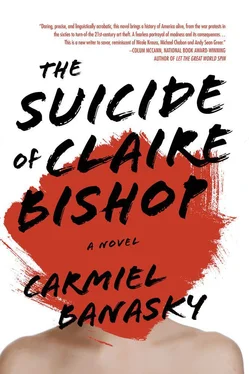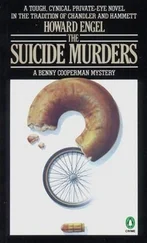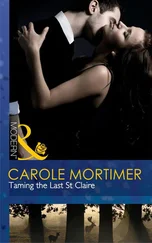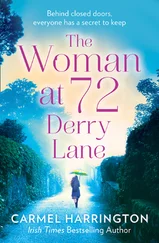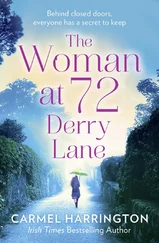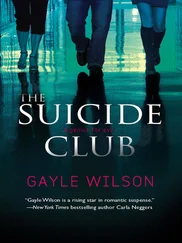Personally, I keep records of what I ate and shat only if there is a disparity between the two.
But even as he archived every detail, I wonder if Bucky really knew himself. Maybe he wrote to get to know himself, and he was afraid he never would. Maybe he was like me. If you’re like me, everyone thinks they know you better than you know you.
I am a detective in search of myself.
The streets are strangely empty. Except they aren’t empty at all. They’re filled with so many shadows there’s barely room to walk. The street signs, the whites of them like the white of an eye, pulse electrically for my attention. The stale breath of traffic outside the 231st Street Station. Someone’s hand-held radio jibes at me. Something old and jazzy. It pushes out a tune that reminds me of a man hunting buffalo. But the hunter is blind and wrongly aiming at me.
I should turn back now — it would be safer than shuffling around the booby-trapped shadow of a sidewalk tree. The landmine house is a block away, off Tibbett Avenue, but there’s a train grinding in my head — are you driving it? I rub at my temples, try to scratch graffiti on it, vandalize it, hide it away.
On the corner, a gray-haired woman with peach fuzz on her chin rummages through a garbage can, organizing aluminum cans and bottles into two sections of a baby stroller meant for twins. She is listening in on my thoughts even though I know she’s not. Someone is not always watching me. She is not watching me.
The landmine house is situated in the middle of the block. Just one house in a row of houses. White with green trim. Barbed wire runs chest level along X-shaped crossbeams around the manicured lawn. I’m as close as I can be without touching the wire. There’s a sign sticking up from the grass in Nicolette’s handwriting: danger: live minefield, keep out. And beside it — a crater she caused by an explosion.
No sign of Nicolette, but she’s always running late.
When I was released from the hospital, there were puddles all over the street but I’d missed the rain. Big dazzling eyes staring up at me from the ground. They weren’t so different from Nicolette’s eyes.
But that was last autumn and this is summer, in the Bronx between the projects and the wealthy Jewish neighborhood.
It’s only me here, and I press in closer, until I feel the prick of the barbed wire through my shirt. I have to get closer because the whole trim of the house — do you see it? — is made up of words. Microscopic negative spaces between the letters. Tiny green inscriptions that hold some inviolable meaning that no one will ever get close enough to read. Except me.
Nicolette cannot scare me. I make my fear whimper at my feet. I want to kick it. It’s just like her to give me something only if I’m willing to die for it. The unreadable word.
I duck under the wire and inch along the grass. Just a little. The barbed wire glistens around me. I listen to the summer heat buzzing in the wings of insects and I hear footsteps reverberating in the wings and I stare at the words that will never be mine unless I move now, I have to move now, and my feet begin to sweat and burn and I start to feel real wild and hot inside like my body is picking a fight with me, and I look up and down the street and something is coming or has already come and I edge closer to the house — am I not afraid to die? Do I need her words that badly? Would I risk my life for them? Or would I risk knowing there are no landmines at all?
Footsteps, voices in the distance, and I duck back under the wire, but it’s not Nicolette.
Men in black hats are coming around the corner. They’re approaching like B-movie monsters — slow and in packs. They could be on their way to shul , someone might say. But I know better. No one goes to synagogue in the middle of the afternoon on a Sunday. They’re marching. I can feel the street vibrating. It rings up and down my body. I turn and stare at their leader, the man at the head of the pack. He’s looking right at me. He’s a few feet away but his eyes catch the sun like tin and glow through the distance between us.
Of all the hours and days they could have visited and here they are next to me. They pant dangerously in the heat, but I can’t get a read on their threat level. It’s hard to tell how many there are out of the corner of my eye — there could be five or twenty men. They are one blob, one giant black-suited being. Do they mean to keep me from her? Of course they don’t, why would they care?
“What is this?” one of the Hasidim exclaims in disapproval. His face is tree bark. “It is like a box you cannot open. Call it art if you want.” The others send out a low hum of agreement. Even their throat clearings are layered in decades of Eastern Europe. “And the tiny words — a cheap trick. She absolves herself of having to say anything real.”
Which is completely wrong. Are they testing me? And what if she’s in earshot?
“You’re wrong,” someone says.
They all turn to a small man in the middle of the pack with a mole on his cheek. “Don’t you see?” he asks excitedly. “She hints at that unbridgeable gulf between the artist and the consumer. Between conception and experience.”
“But she says nothing of interest about that gulf,” the other says. “It is just vague enough to seem thought-provoking. But I am unmoved.”
The small, moled Hasid turns to me. “You agree with me, don’t you?” They are testing me. What do I say? Yes? I try to read the unreadable words. I touch the barbed wire. And then he grabs onto my shoulder. They yank me back and I’m cast to the ground, flailing at their feet. They kick me with their leather shoes, kick in my sides. Their beards shift and move, made up of a thousand black, vibrating bees.
I stand with them, the man’s hand on my back, motherly. “What are you doing?” they ask, a chorus of concern. “You aren’t supposed to touch. It’s art.”
“And it could be dangerous,” the small Hasid says. “You see, don’t you?”
It’s my duty — especially if Nicolette is nearby, listening in — to make them see. “We all put up wires and go to extremes to hide who we are. We don’t know our neighbors. We never will. And we’ll never let them know us. There’s no such thing as community.” I say this in a neighborly voice, trustworthy. A voice that does not sound like it belongs to a man who is somewhere he shouldn’t be. And then I add, “She’s putting up landmines to protect herself. But she’s lying. It’s all a lie. But the truth is here somewhere.”
I understand now what those microscopic words are for, and I must have them. They are instructions. I just don’t know what to.
“You like her art, you will come by our gallery.”
“You have her art?” I say, letting slip a bit of panic. How could I not have known she was showing work in the city? I would have heard about a gallery show.
The small Hasid pinches the other’s arm. “We don’t know that yet. There’s a small, quite negligible dispute over attribution,” he explains to me.
Still no sign of Nicolette. Did she forget? But she couldn’t have, this was important to her. Do they know where she is? Have they done something? Of course they haven’t done anything. “Where is she?” I ask the men.
“Here is our card. Take our card,” the others say as if handing me a Band-Aid or a ransom note. I take three. Someone laughs. And then I turn and run.
——
I’ve gone the wrong way on the subway again — or they changed the signs. I stay in the same car, waiting for the train to return south, a sitting duck above ground. I gave too much away. I shouldn’t have spoken to those men at all.
First item of damage control: send a text to Nicolette: r u ok?
Читать дальше
